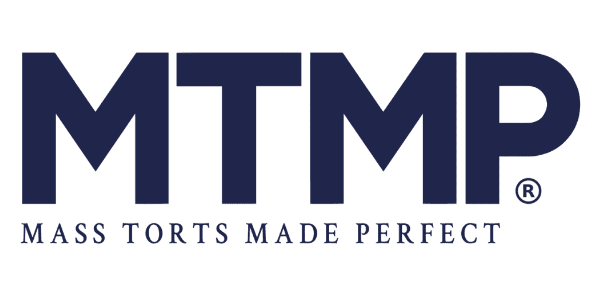Susan B. (0:00:05) – Hello, everyone. Welcome to another episode of the Leverage Report. Really excited to have Ed Bell from Bell Legal Group on with me today to talk about all things Camp Lejeune. Ed, really grateful that you took some time today to connect with me.
Ed Bell: Well, I’m sure glad to be here with you guys. I know y’all have got a great group and a great support group for those of us, and we appreciate it very much.
Susan B.: Yeah. Well, I thought it’d be great if we could just start off, if you don’t mind, just giving us an update and kind of a general overview of the current status of Camp Lejeune, the lawsuits, and the administrative, claims.
Ed Bell (0:00:41) – Well, as you know, the administrative claims will and will essentially end August 9th is the official final day. There are some loopholes that allow certain claims that might be able to be filed after that, but they are rare. So if if anyone has a claim that they’re aware of now, they shouldn’t take the liberty of maybe hoping that their claim would have a chance to be filed later. For example, if someone were to be diagnosed with a disease after the August 9th, then they could possibly file if their disease accrued before August 10th 2022. So if someone has an advanced cancer, for example, and they don’t get diagnosed till after August, there’s a likelihood that they could file under the claims and get in. But it’s not set in stone, and I wouldn’t take a chance on that. But there is a possibility that some additional small group of people could add to the group after that date.
Susan B. (0:02:12) – And so you mentioned August 9th, the deadline this summer. Tell us a little about the significance of that deadline.
Ed Bell – Well, the statute says that you must file your claims within 2 years of the accrual of the illness. If you knew about your illness before the statute started, it is an absolute deadline of August 9, 2024. So most of the people out there should file by the deadline, and so they’re they’re safe. There’s approximately 225,000 claims filed already, and we anticipate another
– 30 to 40,000 to be filed, maybe more. Mhmm. And we’ve seen reports of over, let’s say, 9,600,000 in settlements being paid out so far on some of these cases.
Susan B. – Can you share more details on the settlements and what criteria are being used to determine the settlement amounts?
Ed Bell (0:02:31) – Yep. $9.6 is not a lot of money compared to the overall goal of getting these cases settled. But I was told last week in court that there were 74 cases that have been settled. So if you look at the number of cases settled versus the amount of money, the cases settle really tells you the the story. The settlement offers that are out there for some people are worth looking at, but for some, they’re just you could discard it out of hand. They’re just ridiculously low. But for some people, they were. And how were these cases settled before the global settlement was being offered? The earlier part, Susan, the judges pushed the government to do something to get some process started. And so the government came up with this process that there may be a group of people out there that are willing to take less than what the case is worth because of certain circumstance. Sure. Now there are some people out there that have decided it’s in their best interest to go ahead and resolve it and move on. It’s just not a very large group of people, but that was the attempt. I think the government could have done a better job. They could have made the offers more palatable. They came up with this artificial how long you’re on base criteria, which is quite frankly ridiculous. They’ve come up with a very artificially low latency period, which is kind of ridiculous looking at the science. But they are attempting to basically buy off people. They’ve done you know, a couple of people have done it, but not that many. And then I saw that there was a ruling that the Camp Lejeune cases will not have jury trials. Tell us a little bit about that. What a disappointing ruling. Mhmm. Being involved in passing the statute like I was, clearly, jury trials were part of the congressional intent. There’s no question about that. Unfortunately, the wording of the statute was, according to the court, a little unclear, although there would be no reason to put that wording in the statute unless there was some intent to have jury trials. So there is a an amendment in congress right now to fix that, and, hopefully, that’ll take care of that and and move on to allow people the jury trials like everybody wanted. Sure.
Susan B. (0:04:34) – Good. Well, hopefully, that will pass. I know that the court has categorized these illnesses into different tracks for the trial purposes. You know, I’ve got track 23. Can you explain how the track system works for the listeners and kind of what are the pros and cons of this approach?
Ed Bell (0:04:49) – Well, this is what I think is one of the excellent things the court has done is it recognized that if we can get trials and verdicts in place, it will guide both the plaintiffs and the defendants as to value. So, for example, what the court has done is they’ve they’ve taken the tracks and added put into each track 5 different illnesses. So for track 1, there are 5 illnesses. Track 2, 5 additional illnesses. Track 3, there’ll be 5 more illnesses and so on and so on. Maybe by the time we get to track 3 or 4 or 5, we would have had enough trials of cases to give some guidance to everybody on what these cases may have and an average value. So, for example, someone who gets cancer, that particular value might apply to other cancers as well. Blood cancers, for example, there are 2 blood cancers on track 1. And once you kinda get the values of the certain categories, then they may very well apply to other diseases or other categories. So kidney cancer, bladder cancer are not similar, but they are enough in in the effect on somebody have to they can kind of apply that. So, for example, if someone has one of those cancers and we get a value, it may very well apply to something like esophageal cancer. Now the initial primary value of getting a cancer is just the base value of that case. So, for example, someone who gets kidney cancer in a stage 1, most of the time, they can go in laparoscopically, remove the small tumor from the kidney, And for the most part, it’s cured. So they’re okay. You get out at the stage 2 and 3, then there’s different because stage 23, you have partial resection of the kidney, which is partial removal of the kidney. And then you get a little bit further on into 23, you have a full removal of the kit. That is usually done when the cancer has not spread. So when you have metastasis of the cancer and you’re looking at stage 3 to 4, and that’s where you so if the court gives us some ideas of what those values are in each stage, While each cancer is different, of course, the effect and the result may be different. If we can get a baseline value for each cancer, for example, then the multiplier, if you will, in a grid settlement system might be the different effects that it has. So if somebody had 6, 7 years of chemotherapy, that’s different than someone who had surgery and is cured. So that’s easily put into a value system. Right. Right. Parkinson’s disease, not a cancer, but it also is the most damaging of all the diseases we have. And so that’s a separate issue altogether. So we think that the track system is a genius concept. We think that the court has done an excellent job in setting it up. And I think one day, a lot of these cases around the country, might look at Camp Lejeune and say, you know, they got it right. They did it right. Maybe it’ll be a model for the future of other cases. Yeah.
Susan B. (0:08:00) – Yeah. Hope so. Tell us a little bit about the plaintiff’s database.
Ed Bell (0:08:05) – Oh, it’s interesting. We have set up a plaintiff-only database. Under the court’s original order, we are ordered to do health studies. So we’re in the process of taking some of the diseases that were not studied by the ATSDR and actually looking at the ones that have the most, people involved. And it’s easy we can take that database and say, alright, we have so many 1,000 numbers of this disease. Why do we have so many? And in some we have, you know, 20 or 30, we we recognize that it’s not something that may be caused by the, by the the exposure. So we’re able to take these 100 of thousands of claims, start matching them up against databases the government has, and our epidemiologist can actually do the studies on this. So we’re doing that right now.
Susan B. (0:08:59) – Yeah. That’s very interesting. So, Ed, what advice would you give attorneys that are handling Camp Lejeune cases if we’re thinking about the August deadline and some of the recent updates that you shared today?
Ed Bell (0:09:09) – Susan, the lawyers who have cases must make sure that they are properly filed with the department of the navy. That’s first and foremost. And the federal statute, which is referred to in the Camp Lejeune Justice Act, requires that there are 5 pieces of information, date of birth, name of person filing, the the injury, the amount of damage I think this is there. But there are 5 things. Once those 5 things are entered into the Navy’s database, then that is an assumed they are completely fine. Now the government’s gonna want more information for settlement purposes and things like that. But for the purpose of qualifying for the statute, you get those five pieces of information. You’re done. Make sure you get that in not August 10th, but August 9th is the deadline. Everybody thinks August 10th was the date of the statute being passed, which is true. But August 10th of this year is the 1st day of 3rd year. It’s not part of the 2 years, so people get that mixed up sometimes. Yeah. So it’s August 9th. Get it in by 9th,
Susan B. (0:10:07) – not 10th.
Ed Bell (0:10:08) – Not 10th.
Susan B. (0:10:09) – If there’s one thing to take away from this is that. Ed, this has been fantastic. As I mentioned, I’m I’m real grateful that you took time out of your day to to share these updates and insights about Camp Lejeune. It’s been a real pleasure to have you on the Leverage Report.
Ed Bell (0:10:30) – Well, my pleasure. And anything I can do to help anybody, just have them call.
Susan B – Okay. Thank you.





